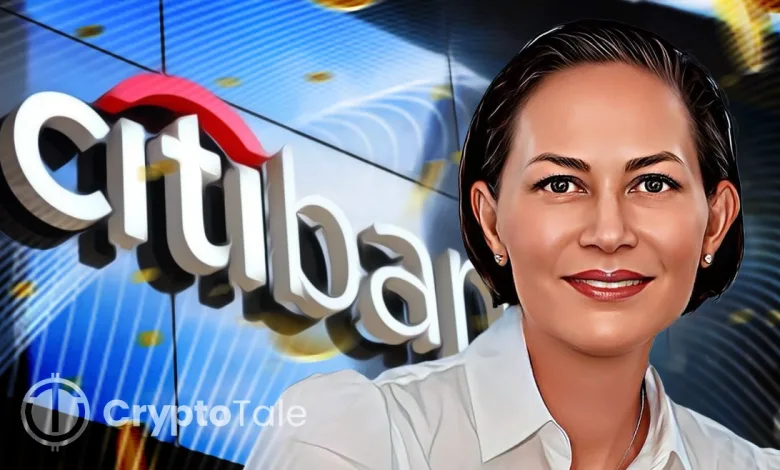Citi UK CEO Warns Crypto Rules May Fuel Shadow Banking

- Citi UK’s Tiina Lee said banks may avoid crypto due to high capital demand rules.
- She asked if crypto should stay supervised or move outside secure financial systems.
- BIS says stablecoins fall short as money, citing weak safeguards and settlement.
Citi UK CEO Tiina Lee urged financial regulators to revisit the rules governing crypto assets for banks, warning that they could drive digital assets into unregulated zones. Speaking at TheCityUK’s annual conference on June 26 in London, Lee criticized the upcoming capital requirements as “prohibitive.” She addressed the global policy that imposes a 1,250% risk weight on crypto holdings starting next year.
Banks will need to hold £125 in capital for every £100 in crypto, assuming a 10% capital ratio, Bloomberg reported Thursday. Lee questioned whether such regulatory weight should remain within regulated institutions or risk shifting activity to the shadow banking sector.
She posed a critical question during her remarks: “As this market moves quickly, do we want it outside the regulated space or supervised properly?”
Global Rules Raise Financial Stability Concerns
Tiina Lee described the looming crypto regulations as harsh and limiting for traditional financial institutions. She explained that the strict 1,250% risk weight penalizes banks for holding crypto, even as the market grows.
Speaking at the London conference, she acknowledged the market’s pace and noted that such high capital demands discourage institutional participation. Bloomberg quoted her as saying the framework is “prohibitive in terms of regulated firms.”
Lee’s concern is that overly tight rules could backfire. Instead of keeping crypto under regulatory oversight, these rules might push it toward entities with limited control and transparency. Regulators are now caught between fostering financial innovation and protecting stability.
This concern echoes broader debates. Banks and policymakers worldwide continue to evaluate whether crypto can be integrated into mainstream finance without weakening oversight. At the same time, financial authorities face pressure to ensure crypto’s rise doesn’t destabilize established systems.
Stablecoin Risks Add Pressure to Regulatory Debate
Meanwhile, the European Commission plans to announce stablecoin regulations that will impact how non-EU-issued coins are treated. Reports from June 25 indicate that the commission will propose new rules, even as the European Central Bank warns of increased market volatility.
These regulations will treat stablecoins issued outside the EU as equivalent to the same-branded ones sold within the bloc. This approach aims to maintain market continuity, though critics argue it may pose a risk when volumes surge.
In a related update, the Bank for International Settlements released a statement on June 24 stating stablecoins “fall short” as sound money. The BIS stated that they lack key features, such as parity in payment, timely settlement, and crime safeguards. Without proper regulation, the BIS argued, they may undermine financial stability and monetary control.
The BIS added, “Their future role is unclear,” underlining global uncertainty surrounding digital asset frameworks. These remarks add pressure on lawmakers to balance innovation with risk prevention, especially with Tiina Lee’s call for the consideration of digital asset rules by the Bank.
Related: UK Regulators Seek Public Input on Stablecoin Governance
Citi Faces Lawsuit Over Crypto Scam Transactions
Separately, Citibank is now facing legal pressure after being named in a crypto-related fraud case. A lawsuit filed Tuesday in a Manhattan federal court accuses the bank of ignoring red flags in a $20 million scam.
Michael Zidell, the plaintiff, claimed he was tricked into sending millions to scammers through accounts held at Citibank and other institutions. He said the fraud was part of a pig butchering scheme where scammers build fake online relationships to extract funds.
Zidell sent almost $ 4 million to accounts they held at Citibank. He accuses the bank of “looking the other way regarding its regulatory role to see the transactions take place.
The incident highlights the growing concern about the activities of banks in online fraud. It also raises doubts about the preventive mechanisms in place to monitor dubious crypto-related activities among supervised entities.




